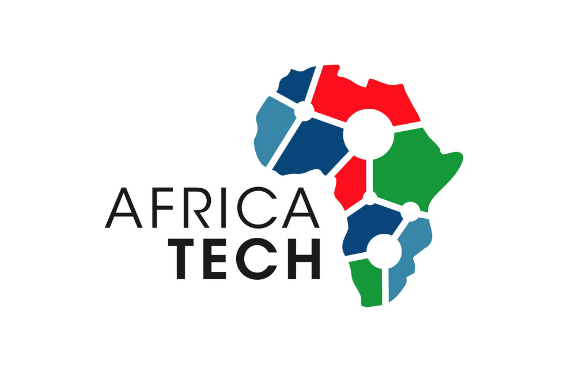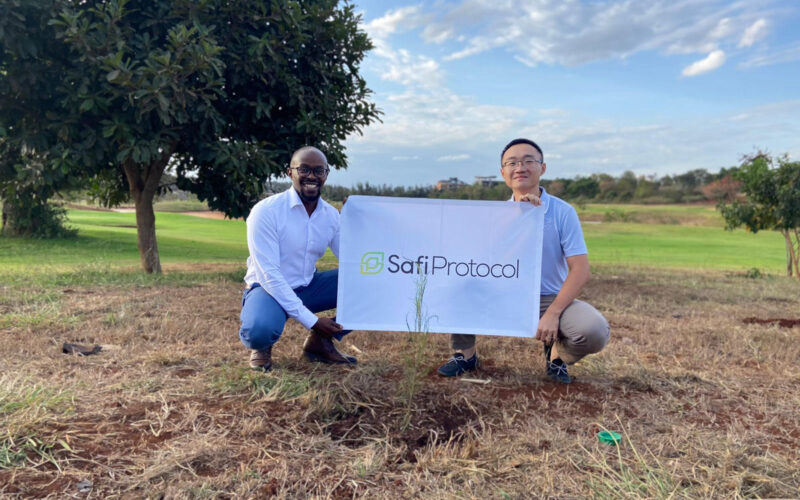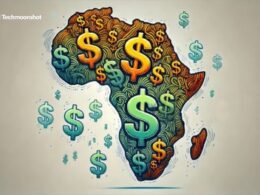In the dynamic landscape of the African tech ecosystem, the year 2023 brought with it a mix of challenges and notable achievements in the African tech ecosystem, demonstrating the resilience and adaptability of the industry. Despite facing hurdles and a contraction in funding, the year was not devoid of positive developments that underscored the potential and growth prospects within the African tech space.
While navigating the intricacies of a challenging funding environment, several innovative startups showcased their ability to thrive and innovate. The tech community witnessed the emergence of novel solutions addressing diverse societal needs, from healthcare and education to fintech and agriculture. This surge in entrepreneurial creativity illuminated the capacity of African tech entrepreneurs to identify opportunities and drive meaningful impact.
Collaborations, acquisitions, and partnerships emerged as crucial elements in overcoming obstacles, as stakeholders within the African tech ecosystem recognized the importance of working together to foster growth. Incubators, accelerators, and industry players joined forces to create supportive environments for startups, fostering a sense of community that proved instrumental in overcoming the challenges posed by the funding landscape.
The Good News In African Tech in 2023
In a recent move, the Central Bank of Nigeria lifted the ban on cryptocurrency transactions that had been in place for the past two years. This decision has stirred enthusiasm, especially within the nation’s crypto and web3 industry.
A Tech Bro Became A Minister in Nigeria
As we have started with Nigeria, let’s continue with the next big thing that got the Nigerian tech ecosystem excited this year.
Shortly after taking office, Nigerian President Bola Tinubu nominated ‘Bosun Tijani, the co-founder and then CEO of CcHUB, for a ministerial role. Tijani was appointed as Nigeria’s minister of communications, innovation, and digital economy.
Given his pivotal role in nurturing the growth of the Nigerian (and African) tech ecosystem, Tijani’s elevation to this ministerial role sparked significant excitement among tech entrepreneurs who anticipated his effective advocacy for their interests.
Since assuming this crucial office, the minister has spearheaded numerous initiatives that have resonated positively within the ecosystem. These endeavors include a landmark initiative aimed at training three million technical talents and the ongoing development of a comprehensive AI policy, showcasing his commitment to driving forward the technology landscape.
Flutterwave Cleared of Fraud Allegations in Kenya
In 2022, Flutterwave found itself entangled in regulatory and legal challenges in Kenya, posing significant challenges for the fintech startup. The Kenyan Asset Recovery Agency had levied accusations of money laundering against the company, while the Central Bank of Kenya asserted that it operated without a license.
Nevertheless, in November, the fintech startup effectively resolved all money laundering charges, resulting in the release of certain frozen accounts. Flutterwave is concurrently advancing its license application, demonstrating its commitment to navigating and addressing regulatory concerns.
Flutterwave is set to invest $50 million in Kenya as a pivotal step in its expansion into the Kenyan market. Beyond Kenya, the fintech startup has undertaken a license acquisition initiative this year and has further expanded its footprint into diverse markets, including India.
The Resurgence of Tech Nation
Six months after suspending operations, Tech Nation, a UK organization responsible for endorsing the Global Talent Visa, resumed its activities in October.
Nigeria stands out as the African country with the highest number of applicants for the UK Global Tech Talent Visa, for which Tech Nation provides endorsements. Globally, Nigeria secures the third position, accounting for 11.3% of applications.
The temporary shutdown initially left numerous prospective applicants disappointed, but the recent reopening has rekindled hope among many young Nigerians actively saving and planning for migration.
The Launch of Norrsken House Kigali
In a landmark move for fostering innovation in Rwanda and the broader African continent, the Norrsken Foundation celebrated the inauguration of Norrsken House Kigali. Spanning an impressive 12,000 square meters, this campus is strategically designed to serve as a vibrant hub for innovative endeavors. Initial reports from the local scene indicate that the facility is already playing host to a thriving community, with over 1,200 startups—both local and international—finding a home within its dynamic ecosystem.
Safaricom M-PESA’s Venture into the Ethiopian Market
In the wake of its expansion into Ethiopia last year, Safaricom has secured a mobile money license from the National Bank of Ethiopia to further extend M-Pesa services within the country. This licensing move places the telecommunications giant in direct competition with the state-owned mobile money provider, telebirr, which previously held a monopoly in the Ethiopian market.
Chowdeck Achieves ₦1 Billion Gross Merchandise Value (GMV)
Another noteworthy figure that sparked discussions within the ecosystem this year was Chowdeck’s. In November, the YC-backed food delivery startup disclosed an impressive monthly Gross Merchandise Value (GMV) of ₦1 billion ($1.2 million). Operating with a fleet of around 1,300 riders spread across four Nigerian cities, Chowdeck continues to make significant strides in the competitive food delivery landscape.
Recently, the startup expanded its network by incorporating Shoprite into its roster of grocery chain partners. This strategic move enables shoppers in Lagos, Ibadan, Abuja, and Port-Harcourt to conveniently make purchases from Shoprite through the platform. With this addition, there is a potential boost to its Gross Merchandise Value (GMV) in the upcoming year.
In the face of challenging market conditions that prompted the exit of food delivery startups like Bolt Foods, many users remain optimistic about the startup’s ability to thrive, even while competing with well-established players such as Glovo.
PiggyVest’s Remarkable ₦1.1 Trillion Payouts Over Six Years
In a significant announcement in September, Odun Eweniyi, the co-founder and COO of PiggyVest, revealed that the Nigerian wealth management startup distributed an impressive sum of approximately ₦400 billion to its users in 2022 alone. This marked a cumulative payout of over ₦1.1 trillion since the inception of PiggyVest, highlighting the substantial impact of the platform on fostering a thriving savings culture in Nigeria, a testament supported by the PiggyVest Savings Report 2023.
Techstars in Lagos
In April 2022, Techstars, recognized as one of the most active investors on the continent, launched the Techstars Accelerator Program in Lagos in collaboration with ARM Labs Lagos. Building on this initiative, the accelerator made significant investments in January, backing 12 African startups. Notable among these investments are alphabloQ, peppa.io, CDCare, and Keza Africa.
A few weeks ago, the accelerator disclosed its investments in 12 additional African startups for its second cohort. Notably, Africa constitutes approximately 40% of Techstars’ current portfolio, showcasing the accelerator’s heightened commitment to investing in the continent, further reinforced by its outpost in Lagos.
VC funds for Northern Nigeria
While Nigeria remains a prominent hub for tech venture capital funds in Africa, the bulk of investments is centered in Lagos and other states within the southwestern region.
Among the 188 startups surveyed for the 2023 Northern Nigeria Tech Ecosystem report by TTLabs, a mere 6% have successfully secured funding. This funding is expected to play a crucial role in addressing the financing gap that has been a persistent challenge in the region.
In November, Abuja-based VC firm Aduna Capital made a significant stride by launching a $20 million fund dedicated to supporting tech startups in Northern Nigeria.
Surayyah Ahmad, the founding partner at Aduna Capital, highlighted, ‘Northern Nigeria is often misunderstood and misrepresented, and over time this has led to stereotypes that have made it difficult for startups from northern Nigeria to secure funding, even when they have promising ideas and strong teams.’
Adding to this momentum, the former governor of Kaduna state, Nasir El-Rufai, recently announced his plan to establish a $100 million fund aimed at investing in Nigerian startups, with a particular focus on those in the North.
The deployment of these funds is poised to significantly enhance investment opportunities in the region, fostering innovation and growth.
Acquisitions and Partnerships
As funding becomes more elusive, a growing number of African startups are contemplating mergers and acquisitions. Critics contend that certain deals may essentially resemble fire sales concealed under the guise of acquisitions.
A total of 26 acquisitions were announced this year, with Nigeria emerging as the predominant market for most of these deals, totaling nine acquisitions. South Africa followed with four, while Egypt and Kenya each reported three. Additionally, acquisitions occurred in Uganda, Benin, Ghana, and Tunisia.
Furthermore, the fintech sector led with the highest number of deals this year, followed by mobility, Web3 and crypto, and e-commerce. Other sectors engaged in acquisition deals encompass artificial intelligence, gaming, healthtech, cleantech, identity, insurtech, proptech, and communications.
Instadeep’s Mega Acquisition with BioNTech in 2023
In January, the German-based biotech company BioNTech completed the acquisition of InstaDeep, a Tunisian AI startup, for a substantial sum of $680 million. The transaction included an upfront payment in cash, BioNTech shares valued at £362 million, and an additional £200 million contingent upon InstaDeep’s future performance.
Among the notable acquisitions that stirred conversations this year, the Egyptian e-sports platform GBarena acquired the Tunisian gaming startup Galactech in a significant $15 million share swap deal. Additionally, there was the acquisition of FlexClub by the Ugandan mobility fintech, Asaak.
Recently, MaxAB, a B2B eCommerce startup based in Egypt, and Wasoko, a Kenyan eCommerce startup also announced a significant merger discussion which obviously will be concluded in 2024 hopefully.












